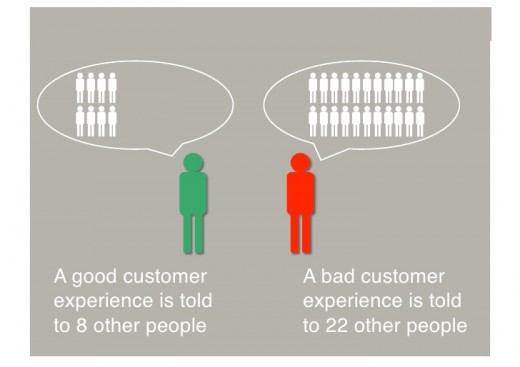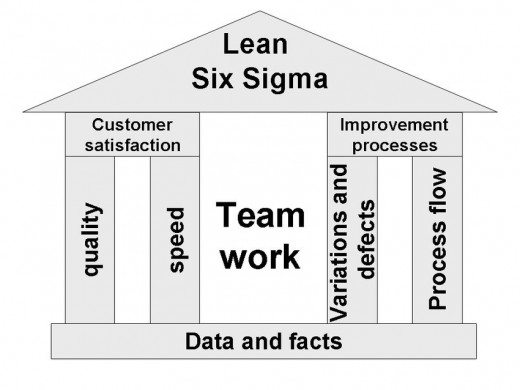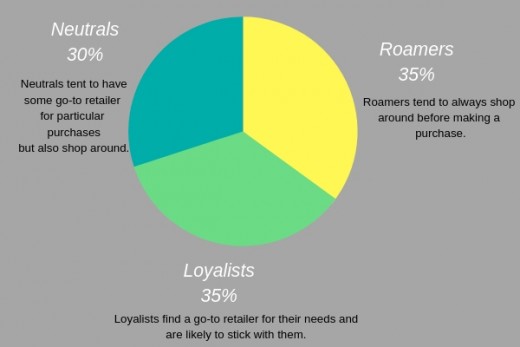How Customer Satisfaction Brings Your Startup Towards Success
Derek Sivers of CD Baby wasn’t wrong when he said, “customer service is the new marketing.” To understand this, you can take a page from Zappos’ book. It’s not uncommon for the brand’s representatives to mail greetings to customers days after they called for assistance.
What’s more, not only does the footwear store not use automation when customers call but the team is also trained to dedicate countless hours to solve a Zapponian’s queries. The longest call recorded till date lasted for more than a whopping 10 hours! In fact, Zappos has a bigger budget for customer satisfaction than it does for even marketing.
The success of the business giant proves that it is on the right track. Directing a sizeable chunk of the business’s attention on customer satisfaction is a move you should make too. Wondering why? Here are some stats that show how crucial it is to ensure your customers are happy:

- 86% of shoppers are willing to spend more on being offered great customer experience
- 89% of buyers get annoyed when they have to repeat their concerns to representatives
- 96% of customers say that customer service is a deciding factor when it comes their choice of being loyal to a brand or not
The Role That CRM Plays In Attracting and Retaining Customers
Customer relationship management works to drive sales and bring in profits by acquiringand retaining customers. Customer relationship managers employ CRM tools and techniques that give an overview of customers’ likes, dislikes, preferences, and more. The team responsible focuses on maintaining a long-term relationship with customers. Stats show that an increase of 5% in customer retention generates a 25% increase in profits.
In short, the goal is to ensure customer loyalty by looking at overall customer activity and data. The customer relationship managementteam studies the target audience. It also maintains communication with customers through various platforms and channels. It collects not only information about customer behavior but also about their feedback.
CRM also determines what a company’s competitors and the overall market are doing to satisfy buyers and keep them onboard. As per a survey, 47% of CRM users say that it can positively impact customer satisfaction and retention. CRM enables change based on the changes in customer behavior. It can help a business set goals and solve customer pain points. Without CRM, a company can face huge loses as it doesn’t know in which direction to go.
No customer relationship management means making a lot of mistakes which, of course, costs a business. It also means having to attract a new set of customers every time which research shows is 7x more expensive than keeping existing customers happy. Customer relationship management is a powerful marketing tool, one which is going to be an important business trend in 2019 as well. After all, for each dollar you spent on CRM, you can get an ROI of $8.71.
Customer Satisfaction Necessary for Business Success
Companies which provide excellent customer experience make 4% to 8% more revenue than competitors. What’s more, 52% of shoppers say that they have made more purchases from brands which have given a good customer service experience. Satisfying customers is a great way to encourage word-of-mouth marketing and hence, a better reputation.
In the modern world, a business’s reputation weighs a lot. One small move that hurts some customers’ feelings and your brand has to suffer. This is why it is necessary to prevent customer dissatisfaction and control the situation if it does occur. A case to take into account here is of H&M. Early last year the brand’s ‘monkey in the jungle’ hoodie on a black child model upset a segment of customers.
This led to intense backlash on social media which didn’t do well for the Swedish label’s reputation. H&M quickly resolved the matter, though, by apologizing publicly, posting a message with a picture that read, “we’re listening.”By doing so it minimized loses. Know that customer satisfaction matters for small and big businesses alike. You see, even Facebook is seeing people leave by the millions in the US probably because of how scandalous the previous year was for it.
Approximately, the social media network now has 15 million less users than it had in 2017. Another example here is that of Australian company GASP. When the brand decided to be rude to a client by fat-shaming her and not apologizing, business went down for it in 2011. On the other hand, one company that shows how providing good customer experience can grow a business is Netflix. The streaming service taps into consumer insights to give customers exactly what they want.
In fact, the model on which it based allows binge-watching, something watchers enjoy a whole lot.Stellar customer experience by Netflix has allowed the company to succeed massively through word-of-mouth marketing. Another name that has grown by offering great customer satisfaction is that of LUSH cosmetics. This brand increased sales owing to its strategy of addressing problems that customers care about in its campaigns. The takeaway? Focus on your customers.
Paying Attention to Customer Feedback - Solving Customer Pain Points
One way to see how you should improve your brand is by requesting customers to share their feedback. 77% brands are favored if they invite customer feedback. When a customer gives a positive review, it helps the company see that what it is doing is right. When a negative review is received, it teaches the brand where it is going wrong.

As Kristin Smaby said, “When customers share their story, they’re not just sharing pain points. They’re actually teaching you how to make your product, service, and business better. Your customer service organization should be designed to effectively communicate those issues.” So how can you get customer feedback? By reviews, ratings, feedback, and more. Here’s a diagram that shows how a collaborative team effort can insure customer satisfaction and business improvement:
How to Satisfy Customers
Now that we’ve looked at stats and examples that explain the importance of customer satisfaction, let’s dive into how a customer can be satisfied. Several marketing techniques can go into ensuring the happiness of your customers. These include solving their problems, assisting them in picking products, providing the best value to them, treating them like a VIP, making the shopping process seamless for them, and never being rude or unhelpful.

You can also apply any unique tactics to make your customers feel delighted to keep them hooked. This can be done by studying how a marketing move works in your favor. For instance, you can offer coupons to loyal customers and then look at coupon code insights to see if the campaign was favorable or not. That being said, your company’s focus should be on all types of customers. Here’s a look at a chart that explains the types of customers your business should engage:
Wrap Up Thoughts
Customer satisfaction is of key importance for a business. It is what maintains a company’s reputation, retains customers, acquires new customers, increases sales, and raises profits. Keeping in view how a brand’s success leans heavily on customer satisfaction, it is crucial to have trained helpful customer representatives, collect customer feedback, and make the most of CRM.








